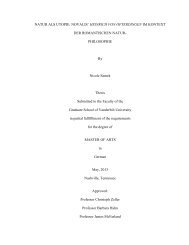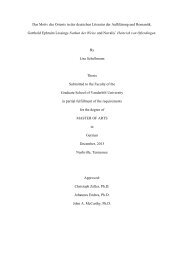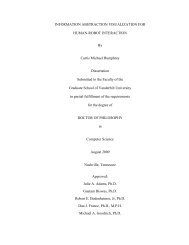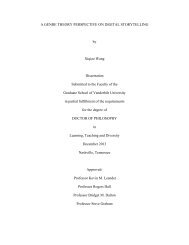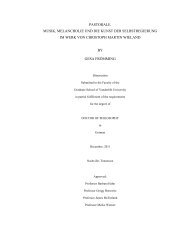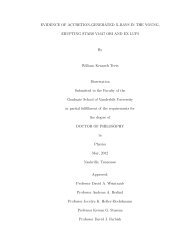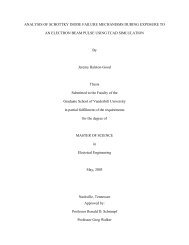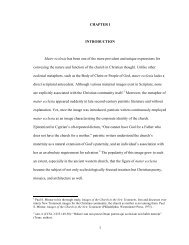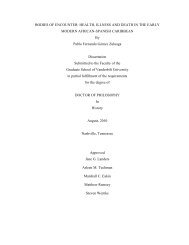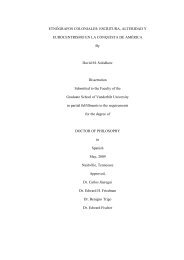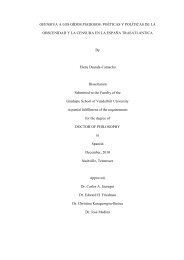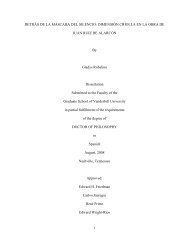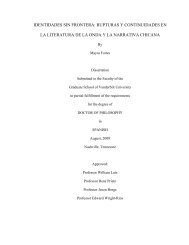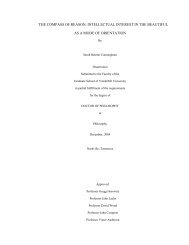THE DEATH OF DIONYSOS - ETD - Vanderbilt University
THE DEATH OF DIONYSOS - ETD - Vanderbilt University
THE DEATH OF DIONYSOS - ETD - Vanderbilt University
You also want an ePaper? Increase the reach of your titles
YUMPU automatically turns print PDFs into web optimized ePapers that Google loves.
argument. At the same time, the analysis does share a few characteristic interests with<br />
Foucault. For one, I too am interested in Goethe’s novel as a historical artefact: a relic, in<br />
fact, of the same late eighteenth, early nineteenth century that looms so large as the origin<br />
of humanity in Foucault’s Order of Things. But the similarities end there. The modern<br />
human consciousness that this study examines reaches back centuries earlier and has<br />
passed through what is called postmodernity with scarcely more than cosmetic alterations.<br />
Nevertheless, Foucault’s historical sensitivity deserves our admiration; for we too will<br />
recognize in the end of the eighteenth and turn of the nineteenth century a defining<br />
moment for modern consciousness.<br />
But something else sets this archeological dig apart. It is not least of all an attempt<br />
to exhume the lost body of Mariane and let it give testimony of her awful suffering. I do<br />
this, because her cruel misfortune is carefully omitted from Wilhelm Meister’s Lehrjahre,<br />
i.e. from the biography of his life that joins the Tower’s library of Bildung. In fact, while<br />
the barely pubescent body of Mignon is embalmed, made over, and housed in the<br />
monumental Saal der Vergangenheit (Hall of the Past) of the Tower, where even the<br />
corpse of the neurotic harpist is accommodated: the all-too lovely/lovable body of<br />
Mariane, prostituted as it was, never is retrieved from the dark trash heap where philistine<br />
respectability had dumped it. If not for the same reasons, even the Society of the Tower<br />
proves more than willing to leave the frightening pain of her life and death in the darkness<br />
of oblivion, far away from the bright and cheerful murals of its humanistic crypt. No life-<br />
affirming requiem is sung for her; and that, even though the Abbé admits that she was not<br />
altogether “unworthy” of Wilhelm after all, at least not “in spirit”. 6 The problem is her<br />
body.<br />
6 In response to Wilhelm’s question regarding his paternity, the Abbé affirms, “‘Felix ist Ihr Sohn!<br />
Bei dem Heiligsten, was unter uns verborgen liegt, schwör’ ich Ihnen, Felix ist Ihr Sohn! und der<br />
Gesinnung nach war seine Mutter Ihrer nicht unwert’” (496). [“‘Felix is your son! I swear it by<br />
all our most sacred mysteries. Felix is your son, and in spirit his deceased mother was not<br />
unworthy of you’” (EAB 304).]<br />
xvi



